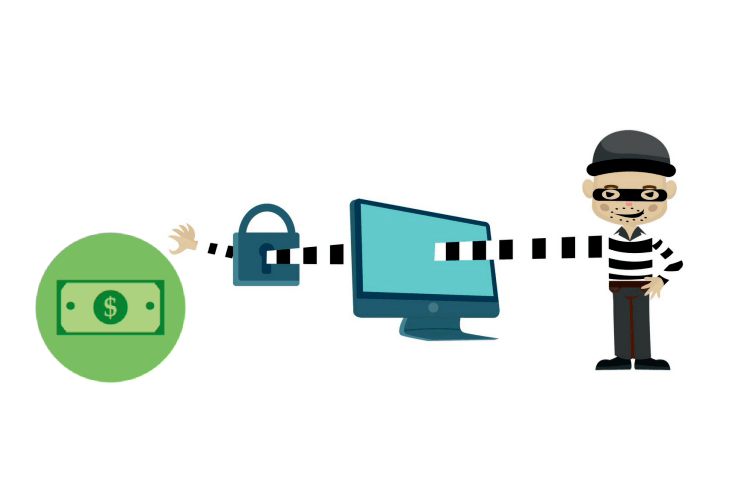Job Listing Red Flags
This is an account of a real situation that happened to me recently!
I was applying for part-time freelance writing jobs the other day and I got a hit. The respondent was interested in my credentials. However, the details of the follow-up email from this respondent were out-of-place. These issues are easy to spot by someone who has experience in the freelance world. However, newcomers may get fooled. That's why I am describing these job listing red flags.

For the purposes of this discussion, I will refer to the respondent as Joe. That's not his real name, but it makes for less awkward writing. The truth is, I don't even know if the name he gave me was real, either!
Change of Terms
Joe responded to me with excitement that I was willing to do the work. However, I never agreed to anything. I responded with my credentials. That does not constitute any agreement whatsoever.
But, even if there was an agreement, Joe decided to change the terms that he specified in the job listing. When you change terms of any agreement, the original agreement is voided.
The listing specified five articles to be written at 1,000-1,500 word (or more). The rate of pay Joe stated in the list was $500 for the five articles. It's not the best rate in the world, but it's not the worst, either.
In the email Joe sent, he stated the following:
"Currently this is what I needed to be done and not the previous Job."
He further stated that he wanted an article writing job with about 12 topics. The word count was the same (1,000-1,500). He gave a date of 14 days for all of these to be completed.
The red flag here is that he wanted more than double the work that he specified in his listing for the same amount of money.
Lot's of Work in the Future
On its own, this isn't a red flag. In fact, I will classify this as a yellow flag. I say this because, it's been my experience that clients who state this, don't deliver. Conversely, I have several clients who never claimed this on their original listings, but have given me steady work for several years.
Usually, clients that make a point to state this, are doing it as a way of attracting freelancers.
It's the carrot and the stick scheme all over again!
It's something easy to list on a job posting. The amount of work that constitutes lots of work is subjective. You may think lots of work means two or three articles a week. Your client may have different ideas such as once a month.
The takeaway, though, is make sure you don't get suckered into giving a bulk rate based on this claim. This is the reason why I label this as a yellow flag. You can offer a bulk rate, but specify you will only do this when there is an actual pattern of frequent work. You can work out with the client what that means to both of you. Also, make it clear if the frequency of work slows, you will revert to the original rate.
I give this item a yellow flag because a potential client could give you frequent work when they claim they will. Don't count on it, though. And, don't agree to a bulk rate based on the claim!
A Generic Email Address
Anyone can create a Yahoo email or Hotmail account. It's not necessarily a red flag when people use these types of accounts. But, it's not professional either. It raises suspicions. Today, it is easy to create a website with a valid domain. The hosting companies provide you with the means to create email addresses with your domain.
Joe corresponded with me via an outlook.com email. Again, this may be legit. But, I am certain outlook.com isn't his business. This domain belongs to Microsoft. Were he a Microsoft employee, I am pretty certain he'd be using an email from the microsoft.com domain. Just saying...
I believe that gmail.com is an exception to the above. I think that Google's gmail system has come a long way in detecting spam and squashing it. I have worked with clients that use their gmail account and I have done so for clients. This isn't to say that a scammer won't try to use it. But, there are more tools available to combat problems.
I can't think of a reason why you wouldn't use your business email. Using a generic email puts people on the alert. Perhaps you could consider this a yellow flag, but I choose to leave it red!
No Mention of Business Website
You may be willing to overlook the generic email. That's fine. But, if you were a client, why wouldn't you at least include your business website? Joe didn't. No mention of it in the original listing or in his response to me.
Most clients I have worked with brand their emails. They are proud of their businesses, and branding can only lead to more business. Put your business information in the email signature and you are apt to get a few responses about your business. This could lead to more business.
Most job listings will include links to articles written on the clients' websites as examples of what they are looking for with writers. There may be links to other sites as well. But, the predominant samples will come from the website of these clients. This makes sense. It's what I do when sending potential clients my portfolio. It is a page created on my writer website.
If your potential client does not include a business website from the start of your correspondence, that is a big red flag in my book. I can't think of a single reason why people wouldn't include this when they are asking for work from you!
Vague on the Details of the Job

Joe was ready to send me a check for $500 and overnight it via UPS (more on this below). Hmmm! All he asked me for was 12 articles on something related to travel. He didn't even care that I have only one sample that is travel related. Yet, he was going to rush $500 to me.
There is a strong likelihood that Joe would have demanded much more work. The vagueness would give him that ability.
This was obviously geared to newcomers who would have been easily caught off guard by the ploy.
A client who is willing to pay you immediately for work that isn't well-defined is going to cause trouble for you. There is nothing wrong with receiving money upfront for jobs. But, make sure those jobs are spelled out clearly. If not, run, do not walk, away from the job!
Too Eager to Get Started
Anyone who is willing to send $500 overnight with little details about the job should be looked upon as suspect. What scammers do is they try to rush you into a decision. The $500 is attractive and is probably more than most beginner writers receive for a job. But, that makes this ploy a big red flag. I don't think I have ever had clients (except scammers) that have been so willing to part with their money without specifying what they want in the job.

This item falls under the too-good-to-be-true category. If it doesn't seem right, it isn't. If your Spidey senses are telling you something is wrong - listen to them!
Unusual Payment Arrangement
Joe wanted to overnight via UPS a check to me for $500. When I received the check, that is when I would start on the assignment.
Had I accepted the job, perhaps the check wouldn't have bounced when I tried to cash it. But, then again, what if it did? Whether it bounced or not, Joe would have access to my checking account number. After all, most banks require you to write your account number when you endorse any check.

I don't know why banks require account numbers in this day and age. I worked for a bank for several years and we had to go through a training program that is required by the government. The program is called Know Your Customer (KYC). This is an initiative that is meant to deter bank laundering and fraud. The idea is that bankers should know their customers well enough to recognize when something is out-of-place. In other words, if you have an account with a bank and you frequently deposit checks for $1,000, then one day, out of the blue, you deposit a check for $30,000, you are supposed to investigate.
KYC could be used to recognize account holders of the bank. Therefore, why would they need the account number to be written on the check? If someone has your account number they can easily obtain the routing number of your bank and set up a wire transfer. Those two items are all you need for a wire transfer. The routing number is publicly available. I really believe banks need to come up with a better mechanism for verification as the current one is antiquated in the digital age.
My suggestion is to use PayPal with new clients. Account numbers are never revealed and PayPal has a resolution system in place for people when one or both parties don't perform. I already described staying away from check payments for clients you have never worked with. Stay completely away from money transfer schemes like Western Union. You will get burnt.
Does Not Respond to Questions and Concerns
With a remote chance of Joe being legit, I decided to respond to his email. I asked for clarifications:
- The original listing was for 5 articles for $500. You mentioned 12 topics in this email. Does that mean you want 12 articles at 1000 to 1500 words each all for $500 in total? If so, I won’t be able to do it for that price. I can do it for $100 per article.
- If we come to an agreement on the rate, I can give you two revisions per article at the rate of $100 per article. Full rewrites would have to be renegotiated.
- Can you pay by PayPal? This is easier and also would save you on the UPS overnight charge. Also, it would protect you should I not delivered my end of the deal (not that I would let that happen!)
- Attached you’ll find a sample. You can also more on my portfolio page of my website: https://jamescochrane.com/portfolio
- Can you give me a link to your business website? I am curious to learn more about your business and who I am working with.
The response I got was radio silence, nada, pretty much what I expected to get. Now, here is a guy that was so eager to rush $500 to me so that we could get the ball rolling if you know what I mean.
He's just going to move onto a newcomer who may fall for it. I know this is wishful thinking, but I hope all those people read this before they stumble on this job listing.
Scammers won't respond to questions and concerns. Legitimate businesses will respond with valid answers that make sense. The legit businesses will be all-too-happy to give you the answers or address your concerns.
Conclusion
I can't say whether Joe was an outright scammer. What I can say is that he was being deceptive and trying to pull one over on me. I will continue to present case studies such as these when I experience them or when I hear that others have. When you are armed with the right knowledge, you'll lower the chances of getting scammed. That is always a good thing!

